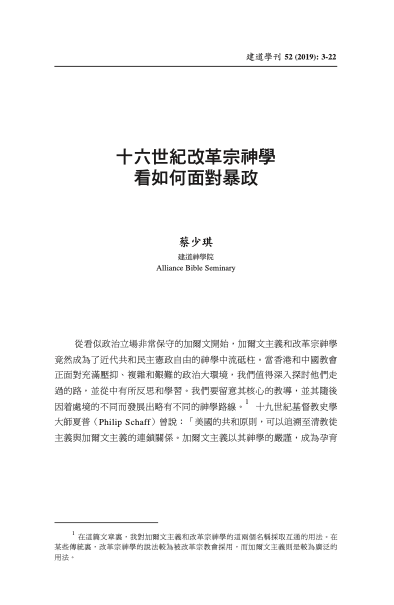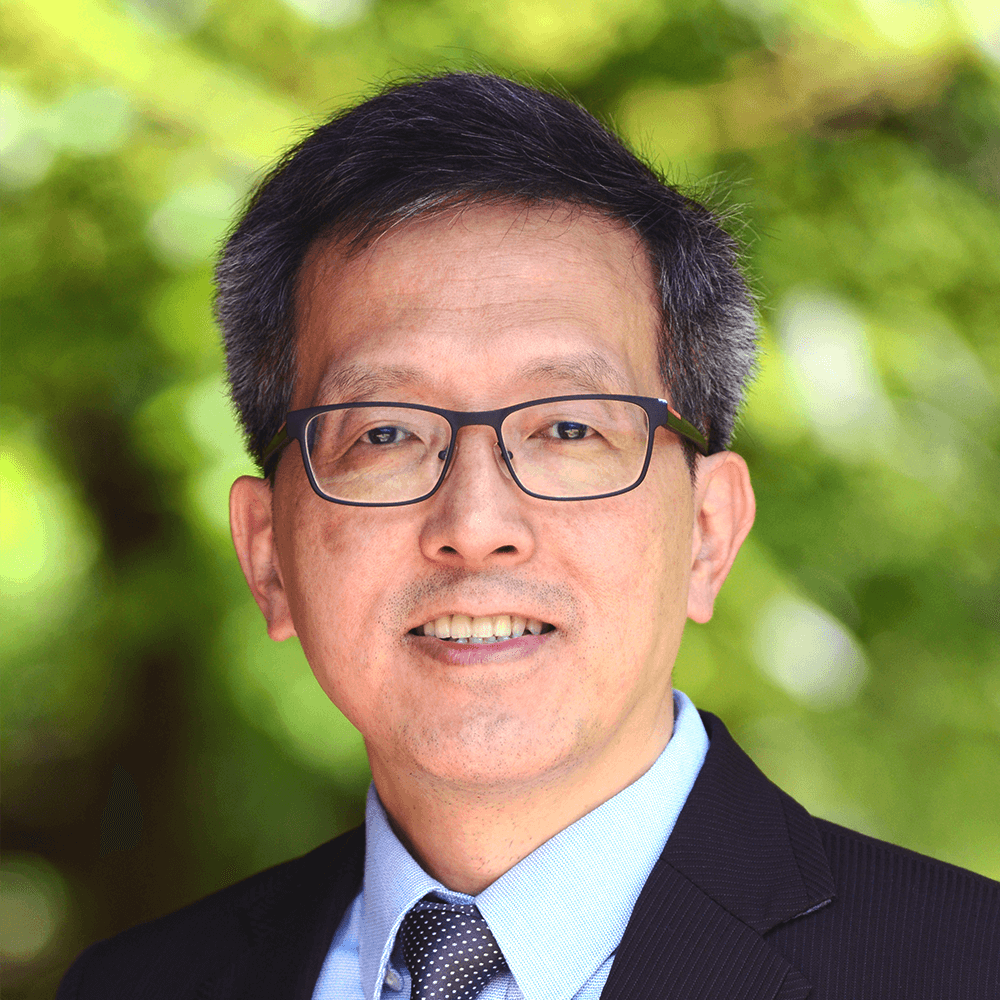十六世紀改革宗神學看如何面對暴政/蔡少琪
蔡少琪
撮要
當面對暴政時,加爾文是否只教導「順服的不反抗主義」?是否蘇格蘭的約諾克斯首先引入更激進的「主動抗爭」的神學路線嗎?本文指出,加爾文在晚年時,加添了「個人反抗暴政」的教導。隨着不同地方的暴政和逼迫事件加增,晚年的路德和晚年的加爾文都加添了「容許個人抗拒暴政」的教導。隨着法 國、蘇格蘭和荷蘭等地面對更殘酷的暴政和逼迫後,第二代的改革宗神學家發展了「允許個人反抗邪惡政權」的「私法理論」。博內特(John Ponet)、高曼 (Christopher Goodman)、霍特曼(François Hotman)、伯撒(Theodore Beza) 和《日內瓦英文聖經和其附錄》(Geneva Bible with Notes)的注釋對發展改革宗的「允許個人積極反抗邪惡政權」的神學路線有重要的貢獻。
ABSTRACT
When Christians face tyrants, did Calvin teach merely “the theory of non-resistance?” Did Calvin consistently ban the concept of “civil disobedience” by individuals? Did John Knox of Scotland introduce the theory of active resistance into Reformed theology? This article points out that the old Calvin added the teaching of individual resistance against tyrants. As the persecutions and tyranny were getting more severe, the old Luther and the old Calvin allowed the theory of individual active resistance in their teaching. As France, Scotland, and Netherlands faced crueler tyranny and persecutions, the Reformers of the second generation developed “the theory of individual active resistance against tyranny” and “the private-law theory of resistance.” John Ponet, Christopher Goodman, François Hotman, Theodore Beza and Geneva Bible with Notes had great contributions to the theory of individual active resistance against tyranny.
原載於《建道學刊》52期(2019年7月),頁 3-22。
作者簡介
蔡少琪
何義思教席副教授
院長
Latest Articles
新手牧者研究計劃(三):新手牧者的身心靈狀態 / 盧慧儀
2025 年 11 月 19 日
個體與關係:滕近輝思想中「深化」的靈性觀 / 倪步曉
2025 年 11 月 18 日
香港九龍塘基督教中華宣道會之起源和發展史/陳智衡
2025 年 10 月 20 日
Highlights
[電子書]困境與抉擇:「建道研究中心30週年誌慶」跨學科研討會論文集/廖炳堂、倪步曉主編
2025 年 1 月 2 日
從梧州到長洲:建道神學院125年的挑戰與恩典 / 陳智衡
2023 年 10 月 1 日
微小教會的見證/高銘謙
2023 年 6 月 1 日








